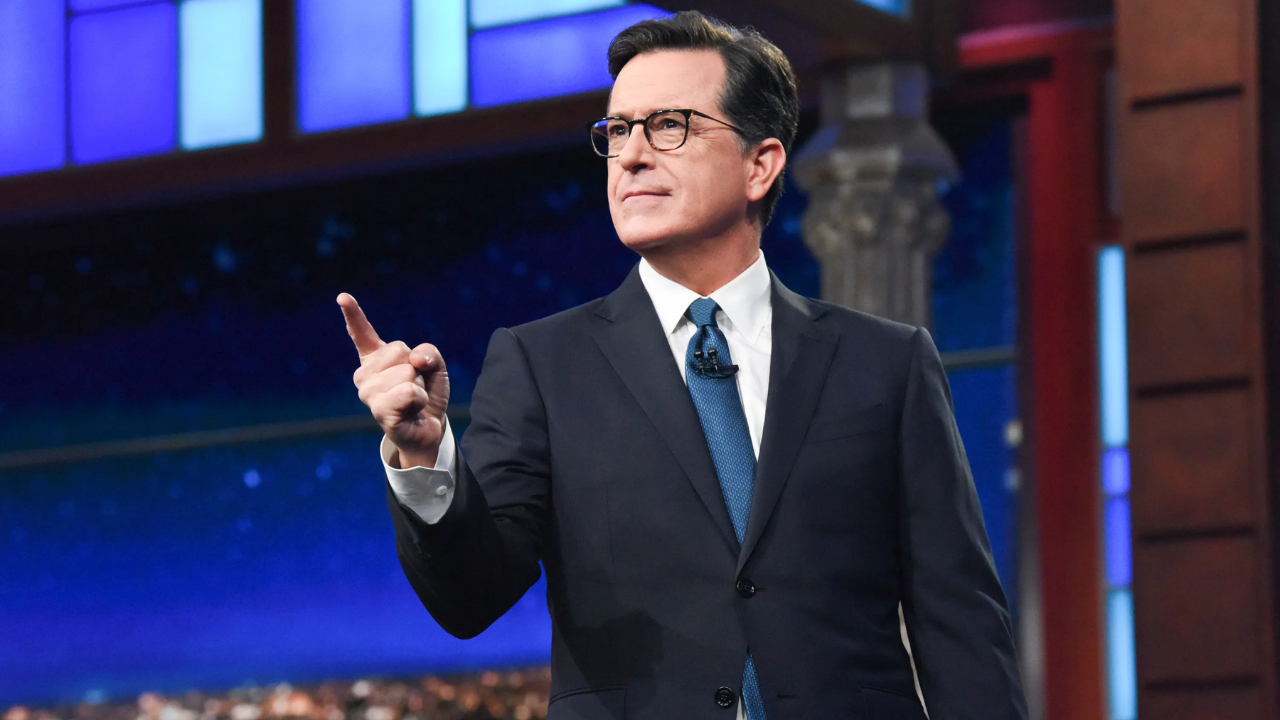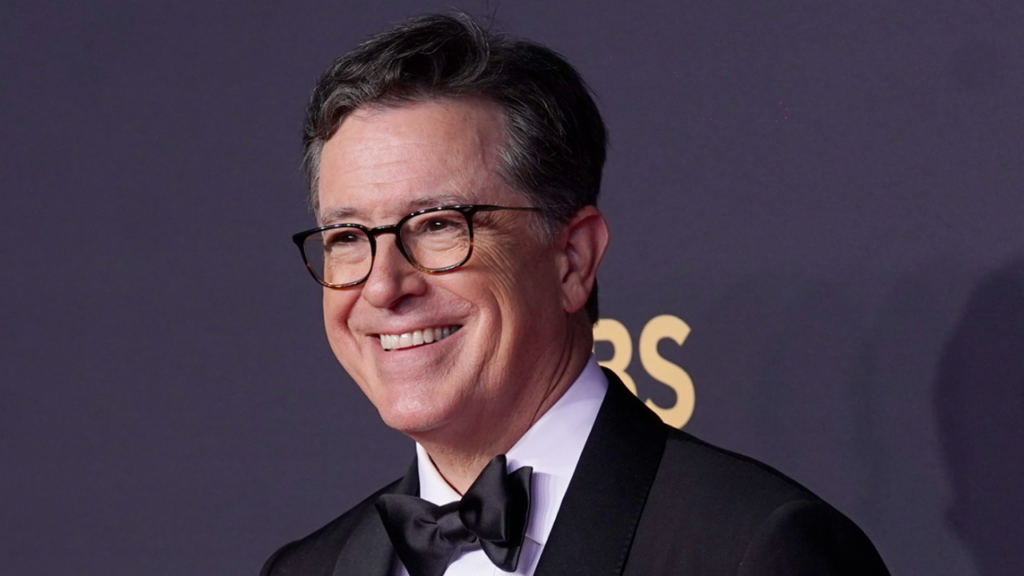
In the ever-entertaining world of late-night television, Stephen Colbert never misses an opportunity to poke fun at former President Donald Trump.
On a recent episode of The Late Show, Colbert delivered a witty and pointed lesson aimed at Trump, particularly focusing on how the former president has repeatedly mispronounced the names of notable figures, like Vice President Kamala Harris.
This time, Colbert turned his attention to providing Trump with what he called a “little pronunciation lesson,” humorously breaking down Trump’s own name in a way that only Colbert could.
The moment was a hit with viewers and another example of how late-night hosts use humor to comment on politics and public figures.
But beyond the jokes, Colbert’s bit also highlights a broader conversation about respect and pronunciation, especially when it comes to names.
The late-night host’s comedic approach has a way of tackling serious issues with humor, making the content not only entertaining but also thought-provoking.
Here’s how Colbert delivered his lesson, and why it resonated with so many.
Colbert’s “Little Pronunciation Lesson” for Trump
On this particular episode of The Late Show, Stephen Colbert wasted no time in addressing how Donald Trump has often mispronounced names, especially those belonging to his political opponents.
Colbert, with his trademark wit, decided to turn the tables on Trump by offering a “brutal” yet humorous pronunciation lesson on Trump’s own name.
Colbert’s breakdown went something like this: “If you’re looking to pronounce the former president’s name correctly, let me help you out. It’s ‘Don,’ like a mafia boss, and ‘old,’ like, well, how outdated his political rhetoric has become.”
The audience erupted in laughter, and the clip quickly gained traction online.
Colbert’s humor cuts through with a sharp edge, but it also addresses a significant point—how mispronouncing someone’s name can be seen as a lack of respect, especially when done repeatedly by public figures.
The Weirdest Items Make the Biggest Profits—Here’s How One Reseller Is Cashing In!
By turning the joke around on Trump, Colbert effectively used humor to critique the former president’s behavior while keeping the tone light enough to entertain his audience.
The Importance of Pronunciation in Politics
While Colbert’s skit was undoubtedly funny, it also tapped into a larger issue that extends beyond late-night television.
Pronouncing someone’s name correctly, especially in politics, is a matter of respect and professionalism.
When public figures, like Donald Trump, continually mispronounce names, it sends a message—whether intentional or not—that they might not care enough to get it right.
Kamala Harris, for example, has had her first name mispronounced by many of her political opponents. This has led to discussions about the importance of names and how they are tied to one’s identity.
Colbert, through his comedic lens, brought this issue to the forefront by showing how easy it is to get it right—with just a little effort.

By making the conversation lighthearted, Colbert managed to discuss the deeper significance of this issue without losing the entertainment value.
His “lesson” was not just about Trump’s name but a reminder that names matter, and getting them right is a basic form of respect.
Amazon Announces New Prime Big Deal Days Event in October, Promising Exclusive Discounts
Colbert’s Role in Late-Night Political Commentary
Stephen Colbert has made a name for himself as one of the most influential voices in late-night television, particularly when it comes to political commentary.
His style of humor often mixes satire with pointed observations, and he has been unafraid to take on political figures, including Donald Trump, throughout his career.
This latest “pronunciation lesson” is just one example of how Colbert uses humor to address serious issues in a way that resonates with a broad audience.
What makes Colbert’s commentary stand out is his ability to balance humor with critical insight. While the jokes are sharp, there is always a deeper message behind them.
In this case, it’s about respect, identity, and the power of language in politics. Colbert’s ability to tackle these issues while keeping his audience engaged is what has made him a staple of late-night television.
How Humor Can Shape Public Perception
The way Colbert delivers his jokes often influences how people view the topics he covers. Humor can be a powerful tool in shaping public perception, especially when it comes to political figures.
By using comedy, Colbert makes the content more accessible and easier for his audience to engage with.
When Colbert jokes about Trump’s mispronunciations, it not only entertains but also subtly educates his viewers on the importance of getting names right.
His humor is a bridge that connects complex social and political issues with everyday conversations. In this way, Colbert plays a crucial role in how his audience perceives these issues, all while keeping them laughing.
Could Mpox Be the Next Pandemic? What We Know About the New Strain Spreading in Europe!
Conclusion
Stephen Colbert’s “little pronunciation lesson” for Trump was more than just a late-night joke. It was a clever way to address a broader issue about respect, identity, and how public figures should approach names and language.
While the humor kept the tone light, the message was clear: names matter, and getting them right is a small but significant way to show respect.
Colbert’s ability to blend humor with important social commentary is what makes him stand out in the crowded field of late-night television.
His lesson to Trump was not just about pronunciation—it was a reminder that even the smallest details, like getting a name right, can carry weight, especially in the world of politics.
